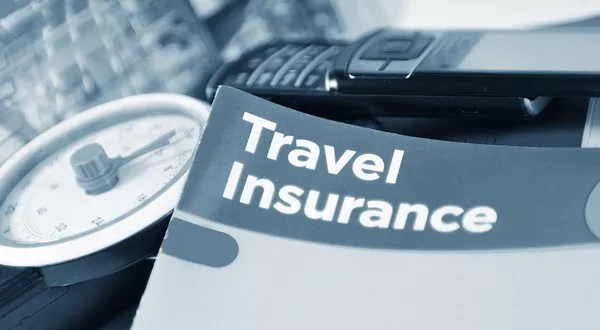Travel insurance serves as a safety net for travelers, providing financial protection against unforeseen events that may disrupt or impact their trip. While coverage can vary depending on the policy and provider, travel insurance generally covers:
Medical Expenses: Coverage for emergency medical treatment, hospital stays, and medical evacuation while traveling.
Trip Cancellations or Interruptions: Reimbursement for prepaid, non-refundable trip expenses if the trip is canceled or cut short due to covered reasons.
Delays: Compensation for travel delays, including additional expenses incurred due to flight or baggage delays.
Lost or Stolen Baggage: Coverage for lost, stolen, or damaged baggage and personal belongings during the trip.
Understanding what can be claimed on travel insurance is essential for travelers to make informed decisions and ensure they have adequate coverage for their trip.
Common Claimable Items
When it comes to travel insurance, several common items can be claimed, including:
Medical Expenses: Coverage for emergency medical treatment, ambulance services, and hospital stays while traveling abroad.
Personal Injury: Compensation for injuries sustained during the trip, including accidents or mishaps.
Trip Cancellations or Interruptions: Reimbursement for prepaid, non-refundable trip expenses if the trip is canceled or cut short due to covered reasons such as illness, injury, or natural disasters.
Delays: Compensation for additional expenses incurred due to flight delays, including meals, accommodations, and transportation.
Lost or Stolen Baggage: Coverage for lost, stolen, or damaged baggage and personal belongings during the trip, including reimbursement for necessary items purchased during the delay.
Understanding these common claimable items helps travelers assess their insurance needs and select appropriate coverage for their trip.
Specific Scenarios
Travel insurance covers a wide range of specific scenarios where travelers may incur expenses or encounter challenges. Some examples include:
Emergency Medical Treatment Abroad: If a traveler falls ill or sustains an injury while abroad and requires medical attention, travel insurance will cover the costs of emergency medical treatment, hospital stays, and medical evacuation if necessary.
Replacing Lost Passport: If a traveler’s passport is lost or stolen during the trip, travel insurance will cover the costs associated with obtaining a replacement passport, including fees and expenses incurred.
Trip Cancellation Due to Illness: If a traveler becomes ill before the trip and is unable to travel, travel insurance will reimburse prepaid, non-refundable trip expenses, such as airfare, accommodations, and tour reservations.
Flight Delay Expenses: If a traveler’s flight is delayed due to inclement weather, mechanical issues, or other covered reasons, travel insurance will cover additional expenses incurred, such as meals, accommodations, and transportation.
These specific scenarios highlight the importance of travel insurance in providing financial protection and peace of mind while traveling.
see also: What Does Easyjet Travel Insurance Cover
Exclusions
While travel insurance provides valuable coverage, there are certain exclusions where claims may not be covered. Common exclusions include:
Pre-Existing Medical Conditions: Travel insurance typically does not cover claims related to pre-existing medical conditions unless a pre-existing condition waiver is purchased.
Reckless or Illegal Behavior: Claims arising from reckless or illegal behavior, such as participation in extreme sports or illegal activities, may not be covered.
Travel to Restricted Areas: Travel insurance may not cover claims related to travel to countries or regions with government-issued travel advisories or warnings.
Losses Not Reported Timely: Claims must be reported to the insurer within a specified timeframe, typically within 24 to 72 hours of the incident, to be eligible for coverage.
Understanding these exclusions is essential for travelers to avoid potential claim denials and ensure they have appropriate coverage for their trip.
Claim Process
Filing a claim on travel insurance involves several steps to ensure prompt and efficient processing:
Notify the Insurer: Inform the insurance provider as soon as possible after the incident occurs, providing details of the loss or damage and any supporting documentation.
Complete Claim Form: Fill out a claim form provided by the insurer, providing details of the incident, including date, time, location, and nature of the loss or damage.
Provide Documentation: Submit relevant documentation to support the claim, such as medical reports, police reports, receipts, and proof of travel delays.
Cooperate with the Adjuster: If an insurance adjuster is assigned to the claim, cooperate fully and provide any additional information or documentation requested.
Follow Up: Stay in touch with the insurer throughout the claims process, providing any additional information promptly and keeping records of all communication.
see also: When Should You Start Your Holiday Insurance From
Documentation Required
To support a claim on travel insurance, travelers may need to provide various types of documentation and evidence, including:
Medical Reports: For claims related to medical expenses or injuries sustained during the trip, medical reports, receipts, and bills are required.
Police Reports: For claims related to theft, vandalism, or other criminal activities, a police report documenting the incident is necessary.
Receipts: For claims related to lost or stolen baggage or personal belongings, receipts for the items are required to support the claim.
Proof of Travel Delays: For claims related to flight delays or cancellations, documentation from the airline, such as a delay verification letter, is necessary.
Submitting accurate and complete documentation is essential for expediting the claims process and ensuring timely reimbursement.
Contact Information
In case of an incident or emergency while traveling, it’s crucial to have access to the insurance provider’s claims department and contact information. This may include:
Claims Department: Provide the phone number and email address for the insurance provider’s claims department, along with any specific instructions for filing a claim.
Online Claim Submission Portal: If the insurer offers an online claim submission portal, provide the website URL and login credentials for easy access to file a claim remotely.
Having this information readily available ensures that travelers can quickly report incidents and initiate the claims process, minimizing disruption to their trip.
Conclusion
Understanding what can be claimed on travel insurance is essential for travelers to make informed decisions and ensure they have adequate coverage for their trip. By knowing the overview of travel insurance coverage, common claimable items, specific scenarios where coverage applies, exclusions, the claim process, required documentation, and contact information for the insurer’s claims department, travelers can navigate the claims process with confidence and peace of mind while traveling.
[inline_related_posts title=”You Might Be Interested In” title_align=”left” style=”list” number=”6″ align=”none” ids=”2117,2114,2111″ by=”categories” orderby=”rand” order=”DESC” hide_thumb=”no” thumb_right=”no” views=”no” date=”yes” grid_columns=”2″ post_type=”” tax=””]





















